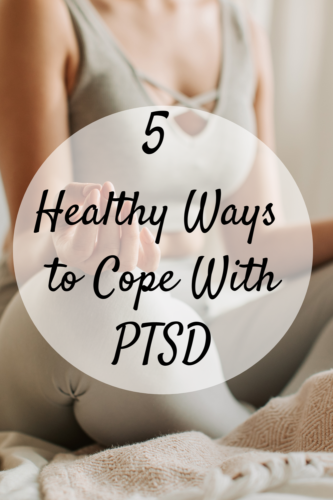
Post-Traumatic Stress Disorder (PTSD) is a health condition affecting about 12 million American adults annually. It can develop after witnessing or experiencing a traumatic situation, causing many symptoms, including intrusive thoughts, flashbacks, avoidance behaviors, and difficulty sleeping. If left untreated, PTSD can significantly impact a person’s quality of life and ability to function. Fortunately, you can follow these healthy ways to cope with PTSD and manage its symptoms.
- Practice mindfulness and relaxation techniques
Relaxation and mindfulness techniques can help manage and reduce the symptoms of PTSD. Mindfulness is being present and aware of your thoughts, feelings, and bodily sensations without judgment. Relaxation techniques such as progressive muscle relaxation and deep breathing can help to reduce anxiety and improve overall mood. Mindfulness and relaxation techniques can also help to reduce symptoms of PTSD and increase calmness.
- Exercise regularly
Regular physical activity can help improve overall physical and mental health. Exercise releases endorphins, which are natural mood boosters and can help improve sleep, reduce symptoms of anxiety and depression, and increase overall well-being. There is no such thing as a “best form” of exercise for PTSD. So exercise in the way that gives you the greatest satisfaction. You may engage in exercises such as jogging, walking, biking, team sports, and even tai-chi or yoga. Including at least 30 minutes of exercise in your daily routine can enhance your mental health, including PTSD.
- Develop a support system
Developing a strong support system can be very beneficial for managing PTSD. Reach out to family and friends, or join a support group for people with PTSD. Having a network of people who understand and can support you can be useful for reducing feelings of isolation and provide an outlet for sharing your experiences. Making connections with others can help to reduce stress and improve overall well-being.
- Engage in activities that bring joy
Engaging in activities that bring joy can help to reduce the symptoms of PTSD. Activities such as playing an instrument, gardening, reading, and crafting are great ways to relax and bring joy. Spend time doing something that you enjoy, and make sure to take regular breaks throughout the day. Meanwhile, several pieces of research have shown that pets can help individuals cope with PTSD. You may spend more time with your pet to help you deal with the disruptive symptoms.
- Seek professional help
Traumatic situations, such as being hit by a car while out for a stroll, can lead to the development of post-traumatic stress disorder (PTSD). This disease can cause sleeplessness, poor interpersonal connections, difficulties working, and other negative outcomes. Psychotherapy techniques such as Eye Movement Desensitization and Reprocessing (EMDR) and Cognitive Behavioral Therapy (CBT) can effectively treat PTSD. Understanding the EMDR process as well as othr common therapies is a critical step in the healing process. It can reduce anxiety around the method and make you more responsive to treatment. These therapies can help individuals understand and manage their thoughts and emotions and develop healthy coping skills. You may also talk to a pedestrian accident lawyer to get the right compensation to seek medical attention.
PTSD can be a challenging condition to live with. Still, with the right support and healthy coping strategies, individuals with PTSD can manage their symptoms and improve their overall quality of life. You may use the above tips and explore a few others to overcome your PTSD challenges and live a fulfilling life.





Leave a Reply